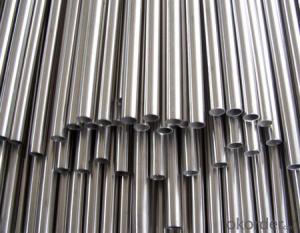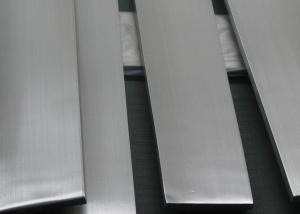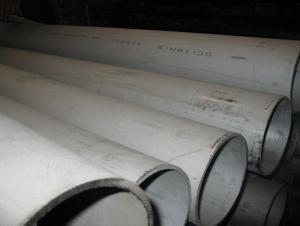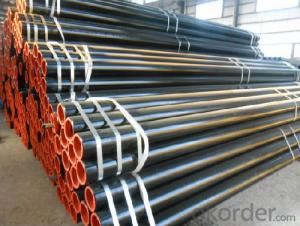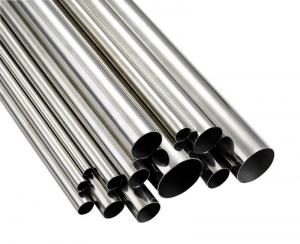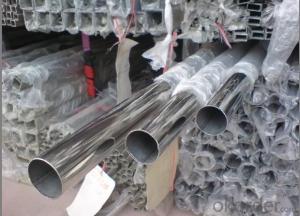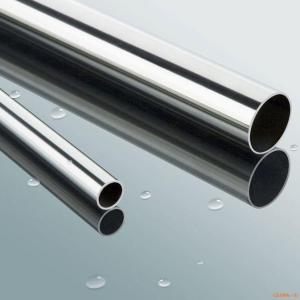Boiler Heat Exchange Stainless Steel Pipe
- Loading Port:
- Tianjin
- Payment Terms:
- TT OR LC
- Min Order Qty:
- 100 m.t.
- Supply Capability:
- 3000 m.t./month
OKorder Service Pledge
OKorder Financial Service
You Might Also Like
Product Description:
1、Structure of Boiler Heat Exchange Stainless Steel Pipe 31803 ASTM A213 Description:
Boiler Heat Exchange stainless steel pipe is often used in the heating system. Heating system, or those stored energy (such as solar energy) in the form of heat, need to be built with the material that can withstand temperatures up to 550 degrees Celsius. High chromium molybdenum welded steel pipe can work in the extreme, which maintain as the ideal material for the construction of power station.
2、Main Features of Boiler Heat Exchange Stainless Steel Pipe 31803 ASTM A213:
• High manufacturing accuracy
• High strength
• Small inertia resistance
• Strong heat dissipation ability
• Good visual effect
•Reasonable price
3、Boiler Heat Exchange Stainless Steel Pipe 31803 ASTM A213 Images:
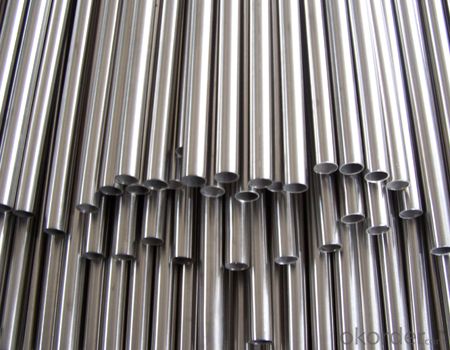
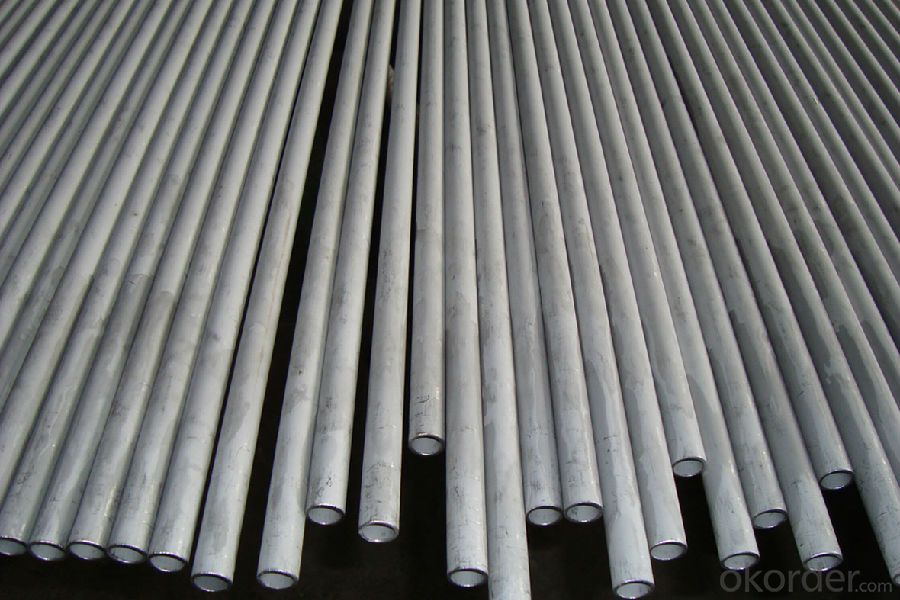
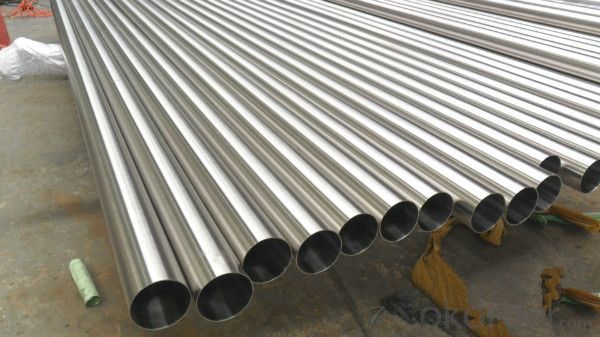
4、Boiler Heat Exchange Stainless Steel Pipe 31803 ASTM A213 Specification:
1)Commodity: heat exchanger pipe
2))Material: 304,316L,304L,316,321,310S,etc
3)Thickness:0.5-100mm
4)Length: 1-14m
| Material Grade | 304,304L,316 ,316L,321,310S,2205,904and so on. |
| Standard | ASTM A312, A554, A249, A269 and A270,ect |
| DIN 17456-85 , DIN 17458-85, DIN 17459-92,ect | |
| JIS G3446-1994, JIS G3448-1997, JIS G3459-1997, JIS G3463-1994,ect | |
| GB13296-1991, GB14975-2002, GB14976-2002,ect | |
| Outer Diameter | 13.7-2020mm |
| Thickness | 0.5-50mm |
| Length | 1m -12m or as customers' request |
| Polish | 180G, 320G, 400G Satin / Hairline |
| 400G, 500G, 600G or 800G Mirror finish | |
| Test | eddy current inspection, ultrasonic inspection, X-ray inspection, real-time imaging, hydrostatic test, spectral analysis, intergranular corrosion, water pressure test, and mechanical property testing facilities. |
| Payment | 1) by L/C at sight, |
| 2) 30% deposit, 70% balance before Shipping. | |
| Delivery time | A.7 days if this goods is stock goods. |
| B.25 days if this goods will be produced after order | |
| Validity | Valid time is 3 days for price usually. |
| Payment terms | FOB QINGDAO |
| MOQ | 1 ton |
| Capacity | 1000 ton per month |
| Certificate | ISO, SGS, and third part inspection |
| Applications | the products are widely used in chemical industry, condenser pipe, heat exchanger, petroleum, shipping military, environment protection, high temperature resistant, low temperature resistant, corrosion resistant and so on. |
| packing details | 1) Wooden-box Package. 2) The Wooden Frame Packing. 3) Intertexture Cloth Packaging with the Iron Sheet Bonding and the Two Terminals Covered With Plastic Dome. |
5、FAQ of Boiler Heat Exchange Stainless Steel Pipe 31803 ASTM A213:
①How is the quality of your products?
Our products are manufactured strictly according to national and internaional standard, and we take a test on every pipe before delivered out. If you want see our quality certifications and all kinds of testing report, please just ask us for it.
Guaranteed: If products’ quality don’t accord to discription as we give or the promise before you place order, we promise 100% refund.
②How about price?
Yes, we are factory and be able to give you lowest price below market one, and we have a policy that “ for saving time and absolutely honest business attitude, we quote as lowest as possible for any customer, and discount can be given according to quantity”,if you like bargain and factory price is not low enough as you think, just don’t waste your time.Please trust the quotation we would give you, it is professional one.
③Why should you chose us?
Chose happens because of quality, then price, We can give you both.Additionally, we can also offer professional products inquiry, products knowledge train(for agents), smooth goods delivery, exellent customer solution proposals.Our service formula: good quality+good price+good service=customer’s trust
SGS test is available, customer inspection before shipping is welcome, third party inspection is no problem.
Any question, pls feel free to contact us !
- Q:Can stainless steel pipes be used for irrigation systems?
- Yes, stainless steel pipes can be used for irrigation systems. Stainless steel is highly resistant to corrosion, making it an ideal choice for applications involving water. It can withstand the harsh conditions of irrigation systems, such as exposure to chemicals, fertilizers, and varying temperatures. Additionally, stainless steel pipes are durable and have a long lifespan, ensuring the longevity of the irrigation system. They also provide excellent flow rates and can handle high-pressure water without leakage or damage. Therefore, stainless steel pipes are a reliable and efficient option for irrigation systems.
- Q:Can stainless steel pipes be used for seawater applications?
- Yes, stainless steel pipes can be used for seawater applications. Stainless steel is highly resistant to corrosion and can withstand the corrosive effects of seawater, making it an ideal choice for applications in marine environments.
- Q:Are stainless steel pipes suitable for water treatment plants?
- Yes, stainless steel pipes are suitable for water treatment plants. Stainless steel is a corrosion-resistant material that can withstand the harsh conditions found in water treatment plants, including exposure to chemicals, high temperatures, and high pressure. It is highly durable and has a long lifespan, reducing the need for frequent replacements. Stainless steel pipes also have a smooth inner surface, which prevents the build-up of deposits and promotes efficient flow of water. Additionally, stainless steel is hygienic and does not leach harmful substances into the water, ensuring the quality and safety of the treated water.
- Q:Can stainless steel pipes be used in food processing industries?
- Stainless steel pipes find widespread use in the food processing industry. This material possesses remarkable durability and resistance to corrosion, making it capable of enduring the challenging conditions and elevated temperatures frequently encountered in food processing plants. Moreover, its non-reactive nature guarantees that it won't interact with food or affect its flavor, rendering it a secure option for transporting diverse food products. Furthermore, stainless steel pipes facilitate effortless cleaning and maintenance, thus ensuring the fulfillment of hygiene standards within the food processing sector.
- Q:How do stainless steel pipes compare to aluminum pipes?
- Stainless steel pipes and aluminum pipes possess distinct properties and advantages, rendering them appropriate for varying applications. A major disparity between stainless steel pipes and aluminum pipes lies in their resistance to corrosion. Stainless steel pipes boast exceptional resistance to corrosion, rendering them ideal for applications where the pipes come into contact with corrosive substances like chemicals or saltwater. In contrast, aluminum pipes exhibit less resistance to corrosion compared to stainless steel and are more susceptible to oxidation. Nevertheless, various coatings or treatments can enhance the corrosion resistance of aluminum pipes. Another crucial factor to consider is the strength and durability of the pipes. Stainless steel pipes generally surpass aluminum pipes in terms of strength and durability. They can endure higher pressure and temperature, making them suitable for high-stress applications such as industrial piping systems or fluid and gas transportation. Aluminum pipes, although less robust than stainless steel, are lightweight and offer favorable strength-to-weight ratios, making them fitting for weight-sensitive applications like aerospace or automotive industries. Cost represents another aspect of comparison. Stainless steel pipes typically incur higher costs than aluminum pipes due to the elevated expenses associated with raw materials and manufacturing processes. However, stainless steel pipes possess a longer lifespan and necessitate less maintenance, which can offset the initial higher cost in the long run. Aluminum pipes generally present a more affordable option, but they might require more frequent maintenance and replacement due to their lower resistance to corrosion and wear. Regarding appearance, stainless steel pipes exhibit a sleek and polished look, while aluminum pipes can undergo anodization or painting to achieve various finishes. The choice between the two would depend on the aesthetic preferences specific to the application. In conclusion, stainless steel pipes deliver superior corrosion resistance, strength, and durability, making them suitable for demanding applications. Conversely, aluminum pipes are lightweight and cost-effective, making them a favored choice in industries where weight is a concern. Ultimately, the selection between stainless steel pipes and aluminum pipes relies on the specific requirements of the application, taking into account factors such as corrosion resistance, strength, cost, and aesthetics.
- Q:What are the different sizes available for stainless steel pipes?
- Stainless steel pipes are available in a wide range of sizes, including standard sizes such as 1/8 inch, ¼ inch, ½ inch, 1 inch, 2 inches, and larger sizes such as 6 inches and beyond. These sizes are commonly used for various applications in industries such as construction, plumbing, and manufacturing. Additionally, stainless steel pipes can also be custom-made to meet specific requirements, offering even more flexibility in sizing options.
- Q:Can stainless steel pipes be used in the petrochemical industry?
- Yes, stainless steel pipes can be used in the petrochemical industry. Stainless steel has excellent corrosion resistance properties, making it suitable for handling various aggressive chemicals and fluids found in petrochemical processes. Additionally, stainless steel pipes offer high strength, durability, and are capable of withstanding high temperatures and pressures, making them a reliable choice for the petrochemical industry.
- Q:What is the lifespan of stainless steel pipes?
- The lifespan of stainless steel pipes can vary depending on various factors such as the grade of stainless steel used, the environment in which they are installed, and the maintenance practices followed. However, in general, stainless steel pipes have a long lifespan and can last for several decades or even longer with proper care and maintenance.
- Q:How do you prevent scaling in stainless steel pipes?
- Preventing scaling in stainless steel pipes can be achieved through various methods: 1. Regular maintenance and cleaning: Cleaning the stainless steel pipes on a regular basis is highly effective in preventing scaling. By utilizing suitable cleaning agents and techniques, any scale buildup or deposits can be removed. Inspecting the pipes frequently can also help identify signs of scaling early on, enabling immediate action. 2. Adequate water treatment: Scaling often occurs due to minerals and impurities present in the water. Employing an appropriate water treatment system can help eliminate or decrease these impurities, thus preventing scaling in stainless steel pipes. This may involve utilizing water softeners, filtration systems, or chemical treatments tailored to the specific water source requirements. 3. Temperature regulation: Controlling the temperature of the fluid flowing through the stainless steel pipes is crucial, as high temperatures can accelerate scaling. Maintaining the temperature within the recommended range helps minimize the formation of scale deposits. 4. Flow velocity management: Another factor contributing to scaling is the flow velocity of the fluid inside the pipes. Excessive flow velocities can cause turbulence, leading to increased scale formation. By adhering to the recommended limits for flow velocity, the risk of scaling can be minimized. 5. Consideration of material selection: The choice of stainless steel grade can impact the likelihood of scaling in certain cases. Some grades of stainless steel are more resistant to scaling than others. Seeking guidance from experts or professionals in the field can aid in selecting the appropriate stainless steel grade that is less prone to scaling. It is important to note that each situation may present unique factors to consider. Consulting professionals or specialists in the field is advisable to determine the most suitable preventive measures for specific applications.
- Q:How do you calculate the wall thickness of a stainless steel pipe?
- The wall thickness of a stainless steel pipe can be calculated by subtracting the inner diameter from the outer diameter, and then dividing the result by 2.
1. Manufacturer Overview |
|
|---|---|
| Location | |
| Year Established | |
| Annual Output Value | |
| Main Markets | |
| Company Certifications | |
2. Manufacturer Certificates |
|
|---|---|
| a) Certification Name | |
| Range | |
| Reference | |
| Validity Period | |
3. Manufacturer Capability |
|
|---|---|
| a)Trade Capacity | |
| Nearest Port | |
| Export Percentage | |
| No.of Employees in Trade Department | |
| Language Spoken: | |
| b)Factory Information | |
| Factory Size: | |
| No. of Production Lines | |
| Contract Manufacturing | |
| Product Price Range | |
Send your message to us
Boiler Heat Exchange Stainless Steel Pipe
- Loading Port:
- Tianjin
- Payment Terms:
- TT OR LC
- Min Order Qty:
- 100 m.t.
- Supply Capability:
- 3000 m.t./month
OKorder Service Pledge
OKorder Financial Service
Similar products
New products
Hot products
Hot Searches
Related keywords
